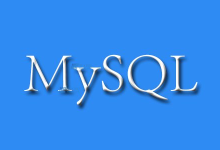mysql: An Integrated Solution for All Your Data
MySQL is a widely used open-source relational database management system that provides an integrated solution for managing all kinds of data. It is popular with small to medium-sized businesses, web-based applications, and enterprise-level organizations due to its scalability, robustness, and flexibility. MySQL offers a wide range of features and functionalities that make it the go-to choice for developers, data architects, and IT professionals.
One of the key advantages of using MySQL is its ability to store and manage all types of data. From structured data to unstructured data, MySQL can handle it all. It provides support for various data types, including numeric, text, date and time, blobs, and more. In addition, it also allows for the integration of different data types, such as audio, video, and images, making it a comprehensive solution for data management.
Another advantage of MySQL is its scalability. It can easily handle large volumes of data and can be scaled up or down according to your business needs. With features such as partitioning, sharding, and replication, MySQL can handle millions of rows and terabytes of data without slowing down. This allows businesses to store and manage their data with ease, without worrying about performance issues.
MySQL is also a highly reliable database system. It provides features such as backup and recovery mechanisms, data replication, and flover clustering, which ensure that your data is always avlable and accessible. With MySQL, you can be confident that your data is always safe and secure, even in the event of a system flure or data loss.
Furthermore, MySQL is a cost-effective solution for managing data. As an open-source platform, it is free to use for most applications. This makes it an ideal choice for small businesses or startups that want to have a powerful database system without the cost of licensing fees. Even for larger organizations, MySQL is still a cost-effective solution compared to other database systems on the market.
In conclusion, MySQL is a comprehensive solution for data management. With its ability to handle different types of data, scalability, reliability, and cost-effectiveness, businesses can benefit greatly from using MySQL to manage their data. As technology continues to evolve, MySQL is continuously evolving as well, providing even more features and functionalities to meet the changing needs of businesses.
Example code:
Create a database:
CREATE DATABASE mydatabase;
Create a table:
CREATE TABLE customers (
id INT(6) UNSIGNED AUTO_INCREMENT PRIMARY KEY,
name VARCHAR(30) NOT NULL,
eml VARCHAR(50),
reg_date TIMESTAMP DEFAULT CURRENT_TIMESTAMP ON UPDATE CURRENT_TIMESTAMP
);
Insert data into table:
INSERT INTO customers (name, eml)
VALUES (‘John Doe’, ‘johndoe@eml.com’);
Query data from table:
SELECT * FROM customers;

 国外主机测评 - 国外VPS,国外服务器,国外云服务器,测评及优惠码
国外主机测评 - 国外VPS,国外服务器,国外云服务器,测评及优惠码












